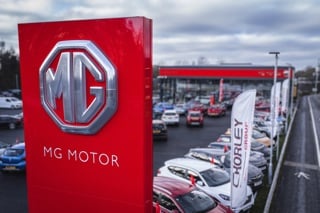Business performance specialist ASE has responded to the release of this years’ Autumn statement saying it will be positive for the UK motor trade.
ASE tax partner Tim Lwin sees the chancellors' changes as good news for enhancing dealership profitability.
Stamp duty changes increase disposable income
The radical overhaul of the much hated “slab” system for stamp duty on residential property purchases will make it much cheaper to buy a home and therefore increase the disposable income of potential customers. Their spending power should be further improved through a combination of measures which include an increase in the personal allowance matched by a rise in the higher rate tax threshold. The Chancellor has also frozen fuel duty, which will result in savings for both individuals and fleet operators.
Apprentices in the workforce
For businesses, the cost of investing in its workforce will be reduced with the abolition of NIC for apprentices aged under 25 from April 2016. This goes further than the original removal of NIC for under 21’s from April next year and will be good news for expanding dealerships taking on workshop and other trainees. The motor trade has always been a strong supporter of the apprentice system and this will be welcome news to dealers and the IMI.
Benefit in kind and company cars
The administration burden for employers may be further eased with the simplification of the benefits in kind regime for reimbursed expenses and the optional payrolling of other benefits. Further in-depth consideration will be required to understand the extent to which dealers with complex company car arrangements will be affected.
Tax incentives beneficial to the motor trade
Incentives for expansion and innovation have been strengthened with the planned extension of enterprise and growth zones whereby businesses obtain rate relief and enhanced capital allowances, for example, where there have been extensive CI refurbishments or the development of a new dealership so this is further good news.
An additional area where motor retailers have traditionally missed out on maximising tax relief is in relation to research and development. Today, this tax relief has been increased for most businesses to 230%, meaning that for every £100 spent on qualifying expenditure on projects such as DMS software or vehicle development, the company may receive an additional £130 tax relief. The introduction of an advanced assurance scheme should encourage first time applicants and ASE recommend that dealers critically assess improvements that have been made to their operations to determine the level of tax benefit available.
George Osborne expects the UK economy to grow for the next four years which is good news for the motor trade. This growth combined with increased consumer spending through rising employment will provide a continued stimulus to the UK motor sector.


















Login to comment
Comments
No comments have been made yet.